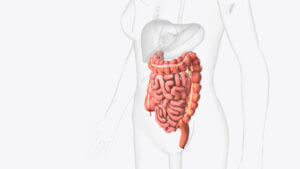Kidney stones are painful, and if you have experienced them, you know how disruptive they can be. These hard mineral and salt deposits can range in size from a grain of sand to a small pebble, and passing them can feel overwhelming. When faced with kidney stones, it is crucial to seek the right medical
Read MoreBlog
The Best GI Doctor Near You: Your Guide to Selection
Choosing the right gastrointestinal (GI) doctor can significantly impact your digestive health and overall well-being. The best GI doctor combines expertise, state-of-the-art technology, and compassionate care to diagnose and treat conditions that affect the digestive system. But how do you find the best GI doctor near you? This article will help you identify and select
Read MorePreventive Screenings With Top Primary Care Doctors Near Me
Preventive screenings are a vital part of healthcare, helping detect diseases early when they are easier to treat. With the guidance of top primary care doctors, organizing preventive screenings becomes far more manageable. But what screenings do you need? When should you schedule them? Let us discuss what preventive screenings entail, their importance, and how
Read MoreHow Primary Care Doctors Support Adult Wellness
Primary care doctors play a vital role in helping adults lead healthier and more fulfilling lives. They are not just for treating illnesses; they are your first point of contact for preventive care, chronic disease management, and overall wellness. Let us discuss how primary care doctors for adults help maintain health, prevent complications, and improve
Read MoreYour Reliable Primary Care Doctors for Adults
Finding a primary care doctor you can trust is one of the most important steps in managing your health. Your primary care doctor is often your first point of contact, someone who understands your medical history and works with you to achieve optimal health. At Hudson MD Group, our primary care doctors are here to
Read MoreEasy and Convenient Women’s Primary Care Services Near You
Women’s health is multifaceted, commonly requiring a combination of preventative care, screenings, acute care, and ongoing support for chronic conditions. Understanding how comprehensive women’s primary care can address these needs is essential because primary care serves as the foundation for long-term wellness. Whether you are looking for general health maintenance or specific guidance on female-focused
Read MoreBest Doctors for Chest Pain: Who to Consult First
Experiencing chest pain can be a frightening and confusing situation. It is important to understand that chest pain can have many causes, ranging from minor issues to serious medical conditions requiring immediate attention. The key is to know which doctor to see for chest pain and how to get the proper diagnosis and care. This
Read MoreBenefits of Seeing a Neurologist Specializing in Multiple Sclerosis
Multiple sclerosis (MS) is a complex neurological condition that affects the central nervous system, disrupting communication between the brain and the body. For MS patients, managing symptoms and achieving the best quality of life often depends on accessing specialized care. This is why seeing a neurologist specializing in multiple sclerosis is so important. These experts
Read MoreYour Solution for Adult Primary Care Needs
Accessing reliable healthcare is important for maintaining overall well-being, but finding the right doctor can be overwhelming. That is where primary care doctors for adults play a critical role. These doctors are often the first point of contact for addressing your healthcare needs, providing treatment, and guiding you through the complexities of medical care. This
Read MoreWhy You Need an OB-GYN for Pregnancy Support
Pregnancy is an extraordinary time in a woman’s life. Yet, it is also a period that requires careful medical attention to ensure the best outcomes for both the mother and baby. This is where having an OB-GYN (obstetrician-gynecologist) for pregnancy support becomes invaluable. An OB-GYN specializes in women’s health, particularly pregnancy and childbirth. They are
Read More












